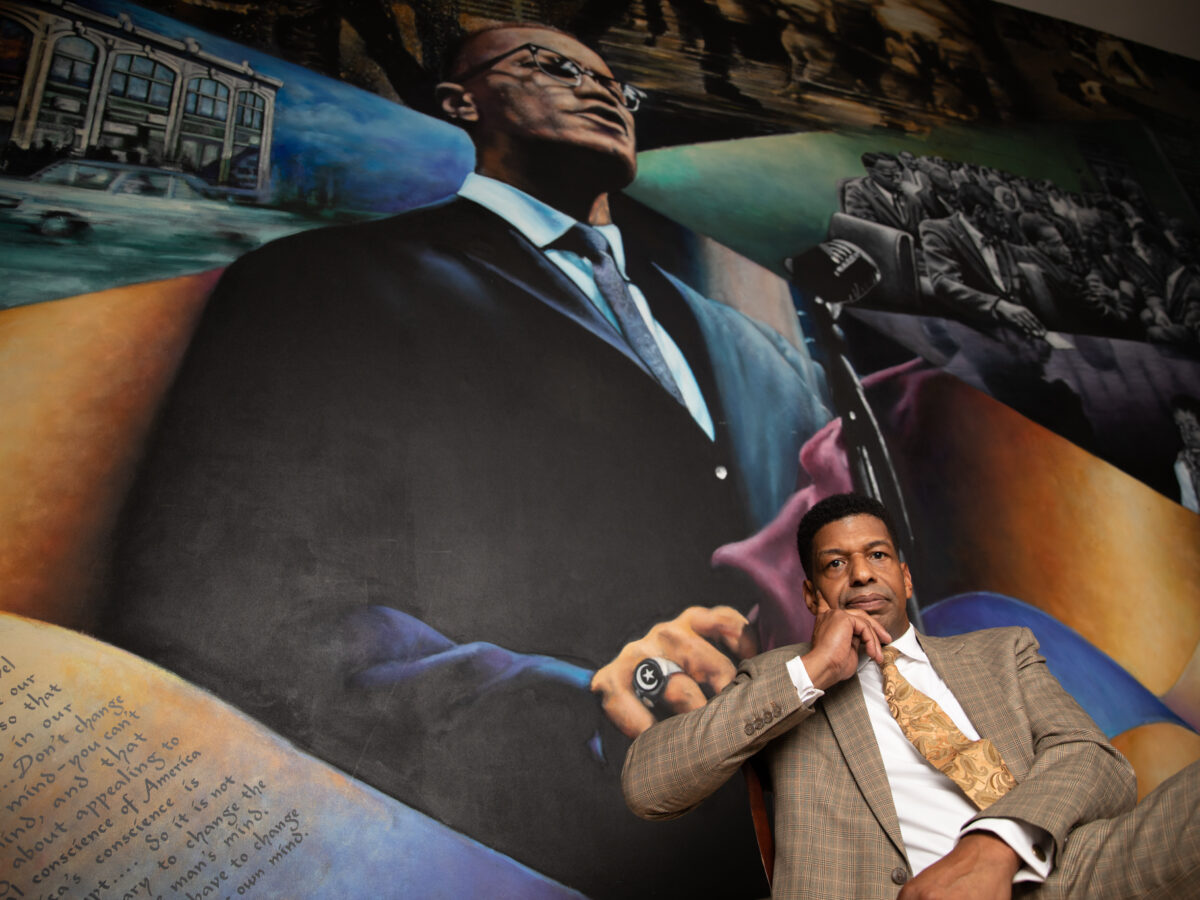Julio Peterson ’86

When Julio Peterson ’86 was a teenager, he worked as a delivery boy for a high-end pharmacy and was awed by the universe of worlds that existed outside his neighborhood. “I walked everywhere and was intrigued by the multidimensional space of the city — the architecture, layout of the streets, the movement and energy, the people, cultures, races, the grit, and the wealth gap between the rich and poor,” he says.
In 1970s New York, he recalls there were a lot of vacant lots and abandoned buildings. “My mother and a group of other poor families took over an abandoned building and fixed it up,” says the 54-year-old, who is one of six children born in northern Manhattan to parents from the Dominican Republic. “We were poor, but we had agency. We were squatters fighting for housing and human rights.”
Going to protests with his mother as a child and learning about housing rights, development and urban politics cemented Peterson’s passion for building and uplifting distressed communities. He went to Cornell to study city and regional planning with hopes of becoming mayor of New York City. After eight years of work in community development, he was awarded the John L. Loeb Fellowship at Harvard University’s Graduate School of Design, where his studies focused on real estate development and finance.
His first job in 1990 was with the New York City Public Development Corporation, which was in charge of development of commercial, city-owned properties under David Dinkins, the city’s first Black mayor. Neighborhoods like Harlem, El Barrio and Bed-Stuy, Brooklyn, needed significant public and private investment after years of neglect. “I saw how hard it was to be a Black mayor and the many compromises made,” Peterson says. He decided that he didn’t have the diplomatic skills or patience to be mayor. The experience of helping to save from demolition the Audubon Ballroom, the site where Malcolm X was assassinated, inspired the Afro Latino urban planner to remain in real estate and development.
“I was born across the street from the Audubon Ballroom, and when I was 13 reading Malcolm X’s auto-biography changed my life,” he says. “It made me pursue learning at a higher level and one reason that motivated me to attend Phillips Exeter.”
Since then, Peterson has managed the development of a throng of commercial and cultural projects, including East Harlem’s Julia de Burgos Latino Cultural Arts Center, Harlem’s first major supermarket and Columbia University’s Biomedical Research Building. “What motivates me is that I can walk around the city and say I was involved in this building and that project,” he says.
Today he is vice president of real estate for the Shubert Organization, the largest theater owner on Broadway. Peterson manages Shubert’s substantial corporate real estate, including the Boch Center Shubert Theater in Boston, Times Square outdoor signage, office and retail leasing, and development. He also acts as the organization’s liaison with elected officials and other stakeholders. Serving on the board of organizations like The Public Theatre, the Association for a Better New York and the City Parks Foundation, among others, allows Peterson to give back to a city that has nurtured him.
As one of the few BIPOC executives in theater, Peterson is also using his voice to bring attention to the whiteness of the industry and calling for changes. “The industry needs to be more inclusive, and that means not just Black and Brown people tap dancing and singing on stage,” he says. “We need to find a pathway to jobs for Black and Brown people in all spaces, jobs that are locked up in the institutional white vacuum.”
Last year, he took on what he says was one of the most exciting projects of his career, working with Malcolm X’s daughter, Ilyasah Shabazz, as co-chair of Harlem’s Malcolm X and Dr. Betty Shabazz Memorial and Educational Center at the site of the Audubon Ballroom. “Malcolm is one of my heroes. It feels great to return to a place after having helped save it and help create a world-class center for the community and the world.”
— Sandra Guzman
Editor’s note: This article first appeared in the winter 2021 issue of The Exeter Bulletin.